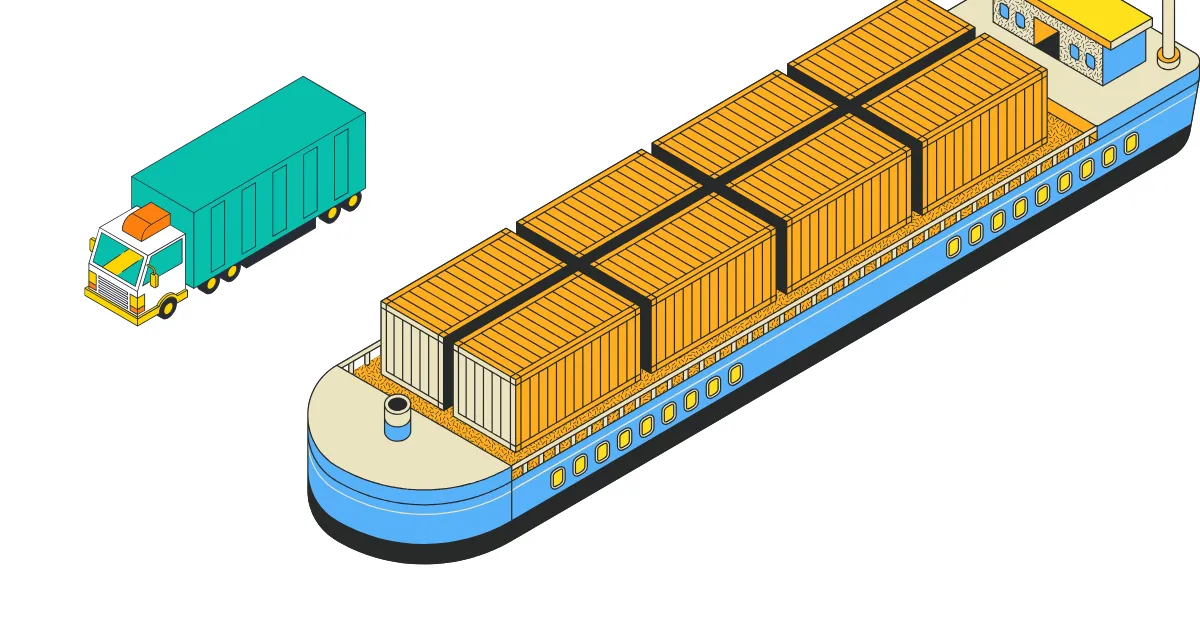As a Beneficial Cargo Owner (BCO), negotiating better contract terms on service and fees is crucial to maintaining a competitive edge. Effective negotiation can help reduce your container rates uncertainly, but what about all of the other fees and charges carriers tack on? And what about service quality and reliability issues?
First, can you get a carrier to sign your contract? Yes, depending on the size of your shipping volumes, you may need to keep your boilerplate very neutral and simple. You should consider using pre-made contracts templates like from National Industrial League (NITL.org) or try the Baltic and International Maritime Council (BIMCO.org).
Key Areas to Negotiate
Negotiating the right contract terms can make a significant difference in your shipping operations. Some key areas to focus on include:
- Pricing and Discounts: Negotiate lower base rates, secure better pricing for higher shipping volumes on your strongest port pairs.
- Service Levels: Look at transit times, surcharges, and price indexes. Bring up service issues and question the service they offer versus the reality you know.
- Surcharges and Accessorial Charges: Minimize additional costs like demurrage and detention fees, free time, and all other fee carriers or forwarders create to apply to your shipments.
Consider everything as negotiable. I have even negotiated Terminal Handling Charges. They all should be on the table in your negotiations and contracting with them.
Specific Negotiations
In addition to the key areas mentioned above, there are several specific negotiations that can help you achieve better contract terms. These include:
- Managing MQC (Minimum Quantity Commitment): Negotiate flexible MQC terms that align with your shipping volumes and patterns.
- Origin and Destination Terminal Handling Charges: Negotiate fixed rates or caps on these charges to avoid unexpected costs.
- Detention and Demurrage: Negotiate reasonable free time allowances and the per diem rates. Many carriers offer 4 days free time and the per diem charge can be $150 per day or higher. All are negotiable and that includes both origin and destination.
- Alphabet Soup of Ocean Fees: Negotiate limits or caps on various types of ocean fees, such as PSS, GRI, War Risk Surcharge, and Congestion Fees.
Do not just accept things as the carriers present them. Build your own path.
Tips for Successful Negotiation
To negotiate better contract terms, it's essential to have a clear understanding of your shipping needs and requirements. Here are some tips to help you succeed:
- Clearly Identify Shipping Needs: Tailor negotiations to your logistical requirements and budget constraints.
- Analyze Operating Costs: Regularly review shipping patterns and market conditions to adjust contract and spot rates.
- Leverage Market Data: Use market analysis to support demands and gain leverage in negotiations.
- Build Strong Relationships: Foster relationships with multiple carriers to enhance negotiation leverage.
Best Practices for Contract Negotiation
To ensure successful contract negotiations, follow these best practices:
- Assessment: Review existing contracts and historical shipping data to identify opportunities.
- Planning & Alignment: Create a strategy and define goals for negotiations that fit your requirements.
- Advisement: Review proposals thoroughly with multiple pairs of eyes and negotiate terms for new contracts. Do not just accept what they propose without your review.
By following these types of tips and other negotiation and contracting best practices, shippers, importers, and BCOs can negotiate better contract terms on service and fees, thus reducing shipping costs and improving overall efficiency. Effective negotiation can help you maintain a competitive edge in the logistics industry and achieve your business goals.
WOWL is a logistics services partner that can support your contract negotiations and planning. WOWL can provide critical data and identify gaps in your programs with carriers and forwarders. Get a demo. WOWL.io





